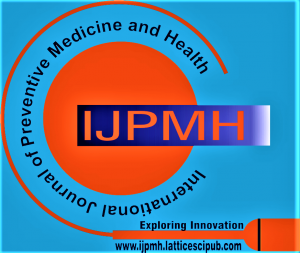![]()
Implementation of PDCA Cycle in Improving Communication Skill-Set for Training the Future Health Care Professionals
Mandyam Rangayyan Roopashree
Dr. Mandyam Rangayyan Roopashree, Department of Quality and Patient Safety, M.S. Ramiah University of Applied Sciences, Bangalore (Karnataka), India.
Manuscript received on 16 June 2023 | Revised Manuscript received on 26 June 2023 | Manuscript Accepted on 15 July 2023 | Manuscript published on 30 July 2023 | PP: 14-23 | Volume-3 Issue-5, July 2023 | Retrieval Number: 100.1/ijpmh.E1029073523 | DOI: 10.54105/ijpmh.E1029.073523
Open Access | Ethics and Policies | Cite | Zenodo | Indexing and Abstracting
© The Authors. Published by Lattice Science Publication (LSP). This is an open access article under the CC-BY-NC-ND license (http://creativecommons.org/licenses/by-nc-nd/4.0/)
Abstract: The research was conducted to evaluate the soft skill competencies and communication among future healthcare professionals. By knowing the level of knowledge, attitude, practices, and Skill-sets and which is assessed as pre and post-test by a questioner and taking the feedback, the data is collected for process improvisation in the training program. Plan, Do, Check and Act (PDCA Cycle) helps in setting the processes for implementation and improving training modules for communication soft skill competency. The PDCA cycle is utilized for the improvement process as a managerial tool in the process setting. The approach helps in competency mapping and evaluating the training module for healthcare managers. This tool helps in enhancing the quality of the training program by assessing the preparation from the participants’ perspective. Data is compared by the pre and post-test scores. Results include the data collected as quantitative and qualitative feedback data to assess the effectiveness of the training module. Data is collected on the level of preparation of the participants, participants’ expectations for taking the course, level of preparation, and the level of interaction with the training program. Data is collated, compiled, analyzed, and interpreted for evaluation. The research provides information on the insights of customer satisfaction, decision-making capabilities, the importance of reward and recognition in training and development, and changing domains in the quality healthcare management sector. The skill sets and competencies which were an outcome were Communication, Collaborator, Team leader, Change agent, Motivator, Analytical skills, and Logical skills. By taking participants’ feedback, the outcome analysis and the effectiveness of training can be evaluated. By evaluation of results, process improvisation, seamless coordination, and continuous improvement are performed. The research concluded as an outcome measure for the betterment of training programs and to improve the quality of services.
Keywords: Training; Quality; Management; Effectiveness; Continuous-Improvement.
Scope of the Article: Health Informatics
